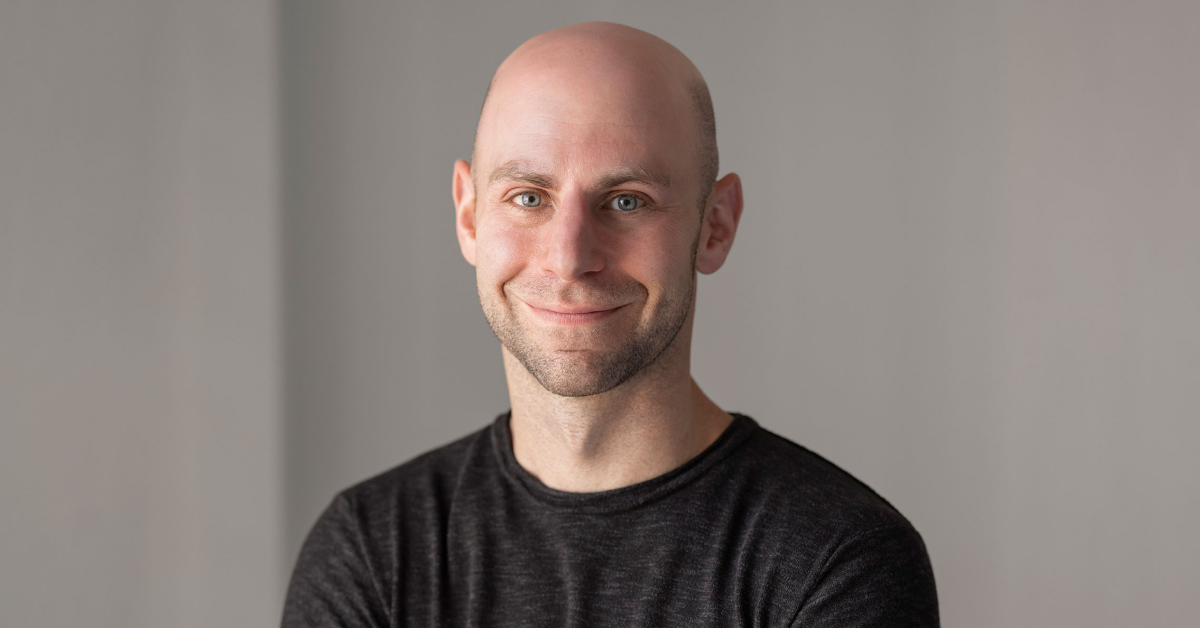Adam Grant says now is the time to experiment. Amid a once-in-a-generation shift in how we work, he cautions leaders about implementing permanent workplace policies too soon. "We've got so much to learn," Grant says. "Think about how much we've discovered about remote work and virtual collaboration in under two years alone — probably more than all of human history combined."
The New York Times bestselling author, Wharton professor, and expert in organizational psychology joined Chief Member Nadia Rawlinson for an exclusive conversation on how leaders can embrace experimentation to alleviate burnout, improve collaboration, and promote equity among their own teams.
On Combating Burnout at an Organizational Scale
"Much of the burnout that we're seeing happens because we have people who are generous to the point of being selfless and self-sacrificing. I don't need to [explain] why that happens in terms of the unfair gender stereotypes that are still dominant in much of the world that expect women to be caring and communal. Those kinds of stereotypes need to be shattered. I think we have a lot of work to do on that. In the meantime, what we can do is we can actually try to change the way that work is allocated in organizations.
"I think the best data I've seen on this is Linda Babcock and colleagues, where essentially they showed that women were more likely to get asked to do office housework — the non-promotable tasks, the taking notes in meetings, organizing events, planning parties, which, in a lot of cases, is invisible work and undervalued work. Women were penalized if they said 'no,' whereas men weren't. Women also got less credit for saying 'yes,' whereas men were celebrated and rewarded for doing it. I think we need to finally recognize that, in the 21st century, we should allocate tasks based on people's skills and availability, not based on their gender.
"I've been working with some organizations to actually track the allocation of these kinds of non-promotable tasks and make sure that they're rotated evenly. I want to look at not just the office housework, not just the non-promotable tasks, but also the tasks that prevent you from stretching your skills, proving yourself, and maybe gaining opportunities to shine. Let's make sure that we're giving those tasks to women, not just to men."
On Collaborating in the Age of COVID-19
"If you look at the data on collaboration over the course of the pandemic, what we see is that most of us have done a pretty good job staying in touch with our strongest ties. Our immediate teams? We have a recurring meeting with them. We check in with our direct reports regularly. What we've lost is the interaction with weaker ties. The more distant colleagues, the clients, the acquaintances that we don't run into.
"People are freaking out about the loss of creative collisions, and I do think that's a problem because data shows we actually get more novel information and better help from our weak ties. The problem with strong ties is they tend to give you redundant knowledge. They know the same people and the same stuff that you do, whereas our weak ties travel in different circles. They learn different things. They can open up new insights. So, how do we get access to them? I don't think there's anything about this interaction that has to be spontaneous. It just needs to be informal. We need to structure unstructured time."
On Confident Humility
"I think that a lot of people assume that confidence and humility are on a spectrum, and if you get too confident, you become arrogant. If you get too humble, you become meek. But the data that I've gathered suggest that they're independent. Confidence is how much you believe in your capabilities and humility is how much you recognize that you're fallible. You're human, you're imperfect, you have weaknesses along with strengths. You can believe in your strengths while still knowing that you have weaknesses, too. I think what that looks like concretely is, leaders with confident humility are secure enough to say, 'I don't know.' 'I was wrong.' 'I need help.' Those statements give people the psychological safety to talk about their own challenges. They normalize struggle."
On Why It's Too Soon to Commit to a Return-to-Office Plan
"We've all been running experiments since March of 2020, whether it's how to be productive when you're working from home, or how to collaborate from a distance, or how to keep your culture alive, or how to find some semblance of work-life balance. I don't think we're doing a good job sharing those and scaling them across an organization. I would love to see every single person at any company be asked, 'What's the best experiment you've run in the past year or year and a half?' 'What is a new experiment you would love for us to try to improve life at work?' I think that would open up the opportunity for all of us to learn from each other about the things that we're trying but maybe not actually spreading so widely."

